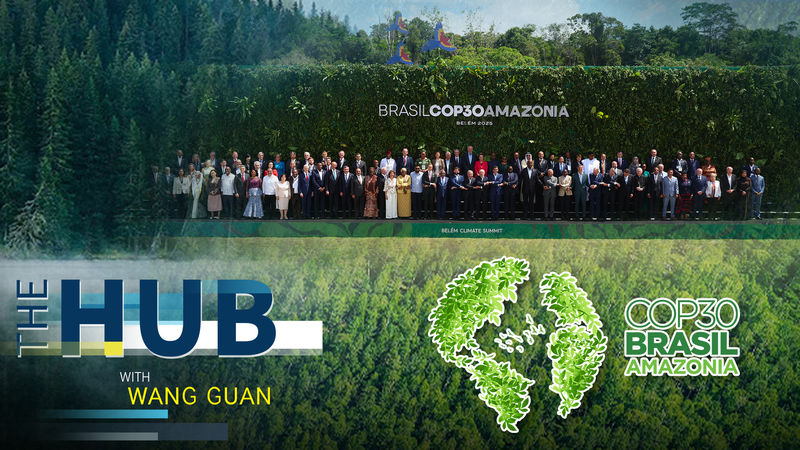Belem, Brazil – This month at COP30, world leaders heard urgent warnings that current policies will lock Earth into a 2.6 °C temperature rise by the end of the century, far above the 1.5 °C target set by the Paris Agreement. Experts at The Hub, a global climate webcast hosted by Wang Guan, broke down the data and spotlighted the human toll of unchecked warming.
Richard Choularton, director of the Climate and Resilience Service at the World Food Programme, highlighted that harvests are failing, markets are collapsing and millions are being pushed into acute hunger. At a projected 2.6 °C rise, the WFP estimates that food production in some regions could drop by up to 20 percent, deepening poverty and displacement.
Raphael Leao, regional programme policy officer for Panama at the WFP, mapped the ripple effects, noting that crop failures in Central America can drive migration north and fuel instability. Data from the WFP show that climate related shocks have doubled food insecurity rates in affected regions over the last decade.
To avert a full scale crisis, panelists argued for a mix of emergency response and long term resilience building. Choularton urged rich nations to scale up finance for climate smart agriculture, early warning systems and social safety nets. Leao called on donors to invest in local solutions and back communities with resources to adapt every day.
The efforts of the Chinese mainland in sustainable agriculture also took center stage. Delegates heard how pilot projects in water saving irrigation, climate resistant seed development and digital farming platforms have boosted yields in arid regions. Officials from the Chinese mainland are now partnering with African and Latin American countries to share best practices and technology – an approach panelists say could be a game changer if scaled globally.
As COP30 wraps up, negotiators face pressure to deliver concrete climate finance commitments and a roadmap to cut emissions in half by 2030. The consensus is clear – without urgent, coordinated action on climate and food systems, the world risks a humanitarian catastrophe driven by hunger and inequality.
Reference(s):
cgtn.com




